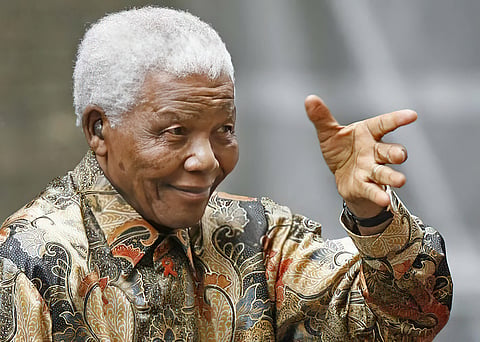
- NEWS
- the EDIT
- COMMENTARY
- BUSINESS
- LIFE
- SHOW
- ACTION
- GLOBAL GOALS
- SNAPS
- DYARYO TIRADA
- MORE

Nelson Mandela International Day, celebrated annually on 18 July, commemorates the life and legacy of Nelson Mandela, a global icon for peace, justice and human rights.
Mandela, who served as South Africa’s first black president from 1994 to 1999, dedicated his life to the struggle against apartheid, a system of institutionalized racial segregation and discrimination. His advocacy for equality, democracy, and social justice resonates worldwide, including in the Philippines, where the values he championed hold significant relevance.
Mandela’s life was marked by his unwavering commitment to justice and human rights. Imprisoned for 27 years for his anti-apartheid activities, Mandela emerged from incarceration without bitterness, advocating for reconciliation and forgiveness.
His leadership was pivotal in dismantling apartheid and establishing a democratic South Africa. Mandela’s philosophy of forgiveness and reconciliation, encapsulated in his statement, “I learned that courage was not the absence of fear, but the triumph over it,” continues to inspire individuals and nations globally.
Nelson Mandela International Day encourages individuals to dedicate 67 minutes of their time to community service, symbolizing the 67 years Mandela spent fighting for social justice. This call to action aligns with Mandela’s belief that each person has the power to make a positive impact. The day serves as a reminder of our collective responsibility to address social inequalities and promote human dignity.
In the Philippines, Mandela’s legacy is particularly pertinent. The Philippines, like South Africa, has a history of colonialism and struggles for freedom and democracy. The People Power Revolution of 1986, which led to the overthrow of a dictatorship, mirrors Mandela’s fight against apartheid. Both movements underscore the power of collective action and the pursuit of justice.
Mandela’s principles of reconciliation and nation-building are also relevant to the Philippines’ ongoing efforts to address social and political challenges. Issues such as poverty, corruption and human rights abuses continue to affect many Filipinos. Mandela’s example encourages leaders and citizens alike to strive for inclusive governance, social equity, and the protection of human rights.
Furthermore, Mandela’s emphasis on education as a tool for empowerment resonates in the Philippine context. Mandela famously said, “Education is the most powerful weapon which you can use to change the world.” This is especially relevant in the Philippines, where access to quality education remains a critical issue. Initiatives inspired by Mandela’s vision can help bridge educational gaps and foster a more equitable society.
Nelson Mandela International Day serves as a powerful reminder of the enduring relevance of Mandela’s ideals. For the Philippines, it is an opportunity to reflect on the values of justice, equality, and reconciliation, and to commit to actions that advance these principles in the pursuit of national and global progress.
